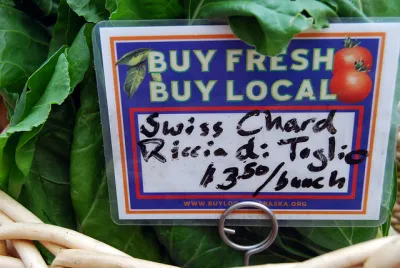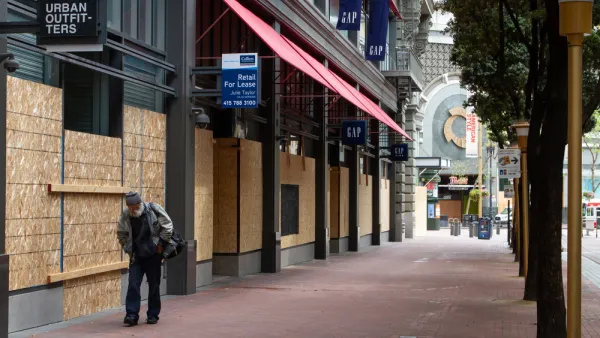The food system, from supply to distribution and consumption, is undergoing a rapid transformation. Community supported agriculture could potentially benefit.

"From California to Maine, the movement known as community supported agriculture (CSA) is booming," according to an article by Eric Westervelt.
A soundbite puts an exclamation on this point:
"In all the time that we've worked with CSAs, which is several decades, we've never seen a surge as quickly as we have of the last few weeks," said Evan Wiig with the Community Alliance with Family Farmers, which supports and lobbies on behalf of CSAs across California.
Westervelt's coverage of the growth of CSAs contracts other narratives about risks emerging in the food system, both in terms of supply and distribution, that have emerged during the pandemic. The headline for an article by Kevin Rector, for instance, reads as follows: "Rotting food. Hungry masses. Chaotic supply chains. Coronavirus upends the U.S. food system."
Another article, by Adam Clark Estes for Recode, explains why the American meat shortage is much more serious than Wendy's asking, "where's the beef?" (the jokes on Twitter wrote themselves when news of a meat shortage at the fast food chain made the rounds earlier this month). The effects of the coronavirus on the U.S. food system could have lasting impacts for years, writes Estes:
This context should put your missing hamburger into perspective. The plight of these workers is just the starting point in a chain of crises the coronavirus is creating in America’s food supply. The shuttered meatpacking plants have created a bottleneck in the system through which most meat in the United States must flow in order to get ground beef to Wendy’s, chicken breasts to your local grocery stores, bacon to the nearby diner now trying to run a takeout business, and so on.
With such dire warnings and near-panic seeping from most stories about the U.S. food system, a "heydey for CSAs," as it's called in Westervelt's article, could be considered a silver lining.
FULL STORY: As Food Supply Chain Breaks Down, Farm-To-Door CSAs Take Off

Analysis: Cybertruck Fatality Rate Far Exceeds That of Ford Pinto
The Tesla Cybertruck was recalled seven times last year.

National Parks Layoffs Will Cause Communities to Lose Billions
Thousands of essential park workers were laid off this week, just before the busy spring break season.

Retro-silient?: America’s First “Eco-burb,” The Woodlands Turns 50
A master-planned community north of Houston offers lessons on green infrastructure and resilient design, but falls short of its founder’s lofty affordability and walkability goals.

Test News Post 1
This is a summary

Analysis: Cybertruck Fatality Rate Far Exceeds That of Ford Pinto
The Tesla Cybertruck was recalled seven times last year.

Test News Headline 46
Test for the image on the front page.
Urban Design for Planners 1: Software Tools
This six-course series explores essential urban design concepts using open source software and equips planners with the tools they need to participate fully in the urban design process.
Planning for Universal Design
Learn the tools for implementing Universal Design in planning regulations.
EMC Planning Group, Inc.
Planetizen
Planetizen
Mpact (formerly Rail~Volution)
Great Falls Development Authority, Inc.
HUDs Office of Policy Development and Research
NYU Wagner Graduate School of Public Service




























